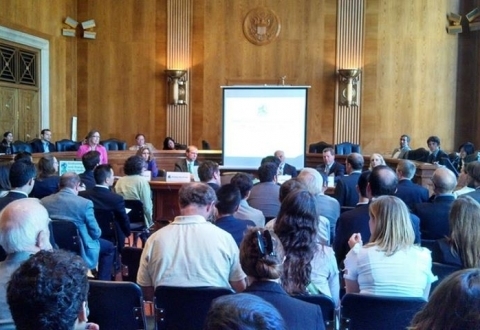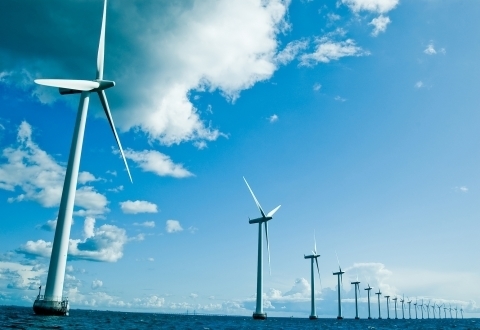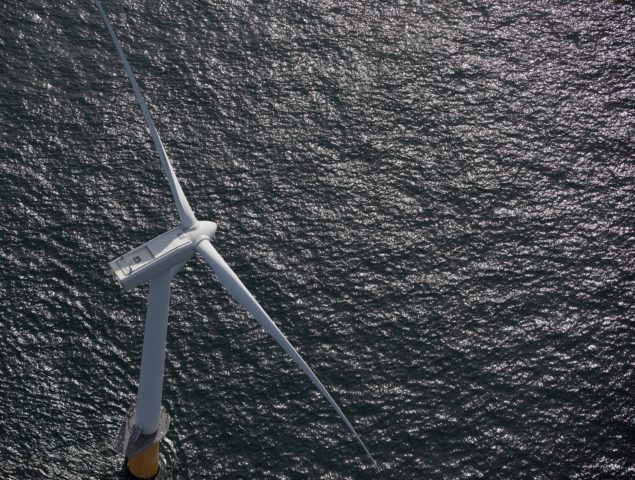CESA Blog
Reducing Peak Demand: Lessons from State Energy Storage Programs
States are increasingly adopting clean energy plans and climate goals, meaning our electric grids are more frequently fueled by variable renewables like solar PV and wind energy. While renewables are inexpensive and clean, they are not dispatchable without energy storage – in other words, they may not generate power at the right times to meet…
Warren Leon Named Executive Director of Clean Energy States Alliance
Today Clean Energy States Alliance (CESA) announced that Warren Leon has been named the organization’s new Executive Director. Leon previously served as Deputy Director of CESA.
CESA Members Brief Congress on Importance of Federal Support for State Clean Energy Innovations
The Environmental and Energy Study Institute (EESI) and the Clean Energy States Alliance (CESA) held a briefing about energy innovations at the state level.
Resilient Power – A New Business Case for Clean Energy
For years, people have put solar panels on their roofs — and states have helped fund them — to clean up the environment. Now, after Hurricane Sandy and the real threat of more severe storms, there’s another reason for solar: keeping the lights on.
New Analysis Makes the Economic Case for Offshore Wind
A new report demonstrates how offshore wind can become cost competitive with electricity generated from natural gas by 2024, even without federal subsidies.
Like Federal Renewable Energy Policy, State Policy Is Important and Uncertain
Clean energy advocates have praised the decision in the fiscal cliff legislation to extend important federal energy tax provisions, such as the production tax credit for wind.
The CESA SLICE Awards: Recognizing State Leadership in Clean Energy Development
The seven programs chosen to receive this year’s State Leadership in Clean Energy (SLICE) Awards have developed innovative grid integration solutions, promoted the smart implementation of solar and wind energy technologies, helped grow small clean-tech businesses, and created new markets for biomass heating.
Report: “Aggregated Procurement” Could Reduce Costs of Offshore Wind Energy
A new analysis shows that “aggregated procurement”—or purchases of large amounts of offshore wind energy by a buyers network—could substantially lower its costs.
New Massachusetts Report Identifies Renewable Thermal Opportunities
For many types of renewable technologies and fuels, producing thermal energy is much more efficient than producing electricity. Yet the vast majority of state Renewable Portfolio Standards address renewable thermal technologies minimally, if at all.
Clean-Energy Finance to Beat Beltway Blues
As the country looks for new sources of clean energy finance while Congress remains paralyzed, we might have missed the most obvious funders that have been right under our noses for years.
MassINC Report Shines Light on Massachusetts’s Strong Climate Change Mitigation Efforts
New report written in partnership with CESA recommends key actions to ensure future emissions reduction targets are met.
Browse by Project
- IRA & BIL Implementation
- 100% Clean Energy Collaborative
- Building Decarbonization and Clean Heating/Cooling
- Energy Storage Policy for States
- Energy Storage Technology Advancement Partnership
- Interstate Turbine Advisory Council
- Low- and Moderate-Income Clean Energy
- New England Solar Cost-Reduction Partnership
- Offshore Wind
- Renewable Portfolio Standards
- Scaling-Up Solar for Under-Resourced Communities
- Solar with Justice: Connecting States and Communities
- State Energy Strategies Project
- State Leadership in Clean Energy
- Sustainable Solar Education Project











